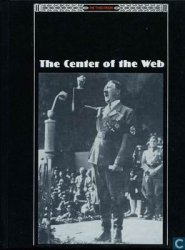Liverpool had Ian Rush back in their ranks in 1988-89. Rush scored 14 goals in his season at Juve but failed to settle. He returned for a season which saw the Reds engaged in a terrific championship batde with Arsenal. At the end of February Liverpool were 8 th, 19 points behind the table-topping Gunners. On 26 May Arsenal came to Anfield for the title showdown. Liverpool had eaten away at Arsenal’s lead and it was they who held the advantage. Arsenal, who had not won at Anfield for 15 years, needed a victory by two goals to take tlie tide. After a goalless first half, Nigel Winterburn struck an indirect free-kick which Liverpool protested had gone straight into the net. The referee judged that it brushed Alan Smith’s head and the goal was given. With seconds to go Michael Thomas burst into the box and flicked the ball past Grobbelaar to give Arsenal the 2-goal margin they needed.
Hillsborough
Second in the league and a 3-2 extra-time win over Everton in the second Merseyside FA Cup Final represented another fine season for Liverpool. But footballing matters had become irrelevant after the events at Hillsborough on 15 April. The eagerly awaited FA Cup semi-final clash with Nottingham Forest was six minutes old and it became clear that there was a tragedy unfolding in the Leppings Lane end. Gates were opened to prevent a crush outside and a mass of fans surged into a part of the ground that was already packed. Perimeter fencing meant that there was no easy outlet. 94 supporters were killed, and the toll rose to 95 a few days later. Tony Bland remained in a coma for four years before his life-support machine was switched off Lord Justice Taylor was commissioned to head an inquiry into the worst tragedy in British sporting history.
The Taylor Report
In the wake of the tragedy there had been no appetite to complete the competition and an abandonment was considered. But both Liverpool and the bereaved families came to regard the winning of the trophy as a tribute to those who had lost their lives.
In die 1980s the game had been tarnished by hooliganism and touched by tragedy, yet it ended on a note of dignity. The sportsmanship shown in both the FA Cup Final and the championship decider gave rise to cautious optimism. The game would endure; but as football moved into a new decade the Taylor Report would be a damning indictment of the conditions in which the fans were expected to watch their heroes perform.




 World History
World History









